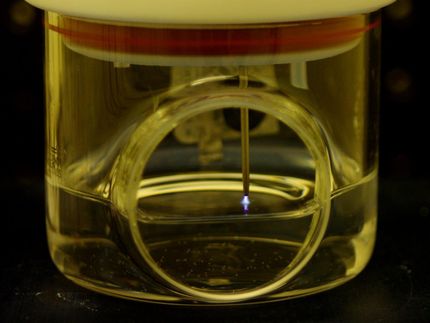Linde supports major environmental research project into depletion of the ozone layer
Advertisement
Linde gases, a division of The Linde Group, announced an agreement to supply cryogenic gases - liquid helium and nitrogen - and other specialty gases, including helium, carbon monoxide and medical grade oxygen, to an international scientific consortium co-ordinated by the Jülich Research Centre, Germany. The gases will be used in an important atmospheric research project to assess the effects of climate change on the ozone layer. The gases will be supplied by Linde’s Swedish subsidiary, AGA.
The project, named RECONCILE, will be carried out as a series of ten flight missions between January and March 2010 from the Arena Arctica base, near Kiruna in northern Sweden. The flights will be undertaken in a Russian supplied M55 ex-reconnaissance plane, the Geophysica, which is capable of reaching altitudes exceeding 20 kilometers. RECONCILE and the subsequent analysis of its research data is being carried out by a consortium of seventeen partners from nine countries, including the Jülich and Karlsruhe Research Centres in Germany, the University of Cambridge in the UK, NASA in the US, the Norwegian Institute for Air Research and the German Aerospace Centre.
Global climate change, which is induced to a large extent by anthropogenic – or human-derived - greenhouse gas emissions, is believed to affect stratospheric chemistry and dynamics, resulting in ozone loss. In turn, changes to the ozone layer can affect change in climate, resulting in a potential spiral of atmospheric damage. The research project will provide insight into how these ozone-climate feedback loops work together and make long-term predictions about ozone and climate change possible.
The Geophysica will carry sophisticated scientific instruments, including a helium-cooled telescope and spectrometry system jointly operated by Jülich Research Centre and University of Wuppertal, Germany in order to probe chemical composition and particle properties by measuring infrared emissions. By providing insight into how ozone-climate-feedback-loops work together, long term predictions about ozone and climate change can be generated.
“Improved understanding of atmospheric composition will contribute significantly to better predictability of ozone changes and how they affect - and are affected - by climate change,” said Dr. Fred Stroh, Institute for Chemistry and Dynamics of the Geosphere, Jülich Research Centre. “RECONCILE will make a vital contribution to this understanding and we are pleased to be working in association with a company such as Linde for the supply of the necessary specialty gases.”
Most read news
Topics
Organizations
Other news from the department science

Get the chemical industry in your inbox
By submitting this form you agree that LUMITOS AG will send you the newsletter(s) selected above by email. Your data will not be passed on to third parties. Your data will be stored and processed in accordance with our data protection regulations. LUMITOS may contact you by email for the purpose of advertising or market and opinion surveys. You can revoke your consent at any time without giving reasons to LUMITOS AG, Ernst-Augustin-Str. 2, 12489 Berlin, Germany or by e-mail at revoke@lumitos.com with effect for the future. In addition, each email contains a link to unsubscribe from the corresponding newsletter.





























































